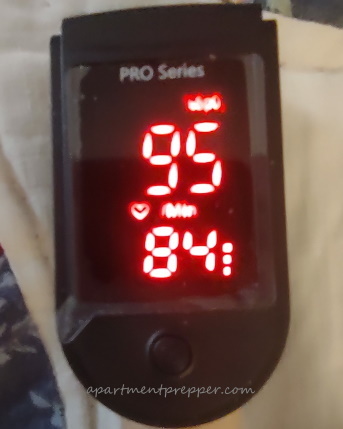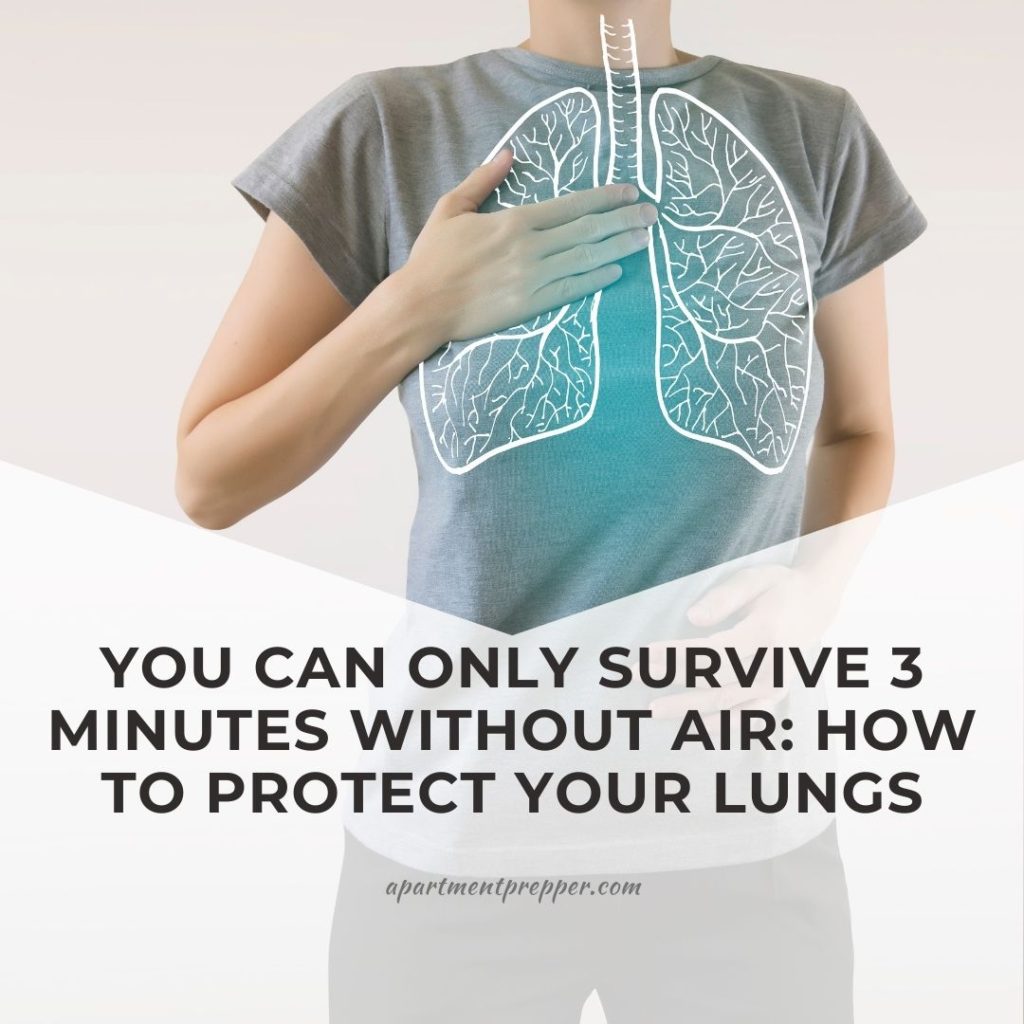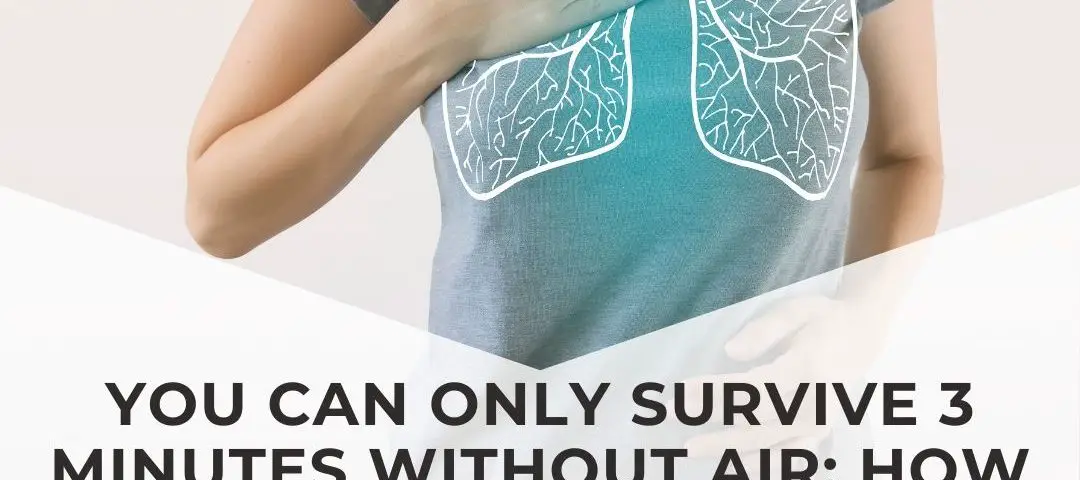Written by Bernie Carr
We all know the survival rule of three: Humans can survive only three minutes without air, three days without water, three hours without shelter in extreme weather, and three weeks without food. But when we look for survival tips, food, water, and shelter are always covered, but air is largely left out, since we naturally think, it’s all around us and not something we can control.
I realized, after getting lung damage from COVID-19 pneumonia, that my lungs working is something I took for granted. I’d pay attention to my breathing while doing yoga, running or some other exercise, but I never really thought about my lungs that much. (I’m not a doctor, all I can do is share what I have learned. Check with your own medical practitioner to find out what’s right for you.) Now that I am on oxygen, I realized that lung health is crucial to survival and I have been searching for ways to protect them.
Protect your lungs
If your lungs get damaged, you’ll be unable to take in enough oxygen. Actively protecting your lungs may help you avoid breathing problems in the future.
Avoid smoking
The American Lung Association cites smoking as the #1 major threat to lung health. Smoking cigarettes causes lung cancer; the smoke causes air passages to narrow, making breathing more difficult. It also causes swelling in the lungs, which can lead to chronic bronchitis.
Stay away from indoor and outdoor pollutants
After I returned home from the hospital, I caught a whiff of bleach. I instantly felt my chest tightening and I started coughing. I had never had any issues with bleach before and have used a diluted formula for cleaning and disinfecting. But now that I have had some lung damage, just the smell caused issues, which reminded me I have to stay away from strong chemicals.
When using chemicals inside your home for cleaning or disinfecting, make sure you have proper ventilation. Never mix chemicals such as bleach and ammonia.
Check your home for radon, a naturally occurring gas that can can be trapped in indoor areas. Radon exposure can cause lung cancer, second only to smoking.
Avoid second-hand smoke.
Never turn on a gas stove or barbecue indoors to stay warm.
Never run a gas generator indoors. Make sure you have proper ventilation when running a generator.
Besides having a fire alarm, get a carbon monoxide detector for your home.
Check the air quality in your area before exercising outdoors. Ozone and other pollutants may be trapped in the air during stagnant, warm weather.
Avoid running along heavy traffic areas as you will inhale a lot of vehicle exhaust emissions.
Get some exercise
Regular exercise, especially cardio, can help increase lung capacity. I have learned that qi gong is great for breathing exercises.
Eat nutritious food
Increase your intake of fruits and vegetables as they contain high levels of antioxidants which protect against lung diseases and cancer.
Stay hydrated
The doctors at the hospital advised me to drink a lot of water. It’s important to stay hydrated for proper lung function. That’s because lungs consist of 85% water- they need to be continually moistened to continue taking in oxygen and expelling carbon dioxide.
What if you get COVID-19?
Most COVID-19 cases are mild, but a percentage of people get very sick. The virus can hide in your lungs, spread, and start to do damage. There are ways to protect your lungs, according to Dr. Bruno DiGiovine, a pulmonology and critical care specialist:
Getting air deep into the lungs: Make sure they’re opening up the lungs as much as possible using all of the available air sacs to move oxygen in and to excrete out carbon dioxide,” he said. An instructional video from the American Lung Association shows that using pursed lipped breathing can get oxygen into the lungs and CO2 out.
Lie on your stomach: When you lie on your stomach instead of your back, it helps prevent fluids from accumulating in your lungs.
Move around as much as possible: The thing that probably encourages you the most to deep breath and clear out mucous is to exercise,” said DiGiovine. “So keep moving, keep active, obviously isolate when you need to. You don’t want to be going outside when you’re infectious, but as much as you can move around your house, that would be great.”
Fox2Detroit
When I was in the hospital with COVID-19 pneumonia, the doctors recommended I lie on my stomach. I tried it and it did help – my oxygen levels improved.
Monitor your breathing
If you become ill, monitor your oxygen level with a pulse oximeter. I was told at the hospital that the oxygen level should not be below a reading of 90.

A spirometer is a good way to expand lung capacity.
Don’t put seeing a doctor
Get regular preventive checkups. Lung disease can go undetected for years.
If you begin to feel shortness of breath, tightness in your chest or any other problems, see a doctor right away or go to the hospital emergency room.
We are an affiliate of Amazon.com, which means we received a small commission if you click through one of our Amazon links when you shop, at totally no cost to you. This helps keep the lights on at the blog. Thanks!
About the author:
Bernie Carr is the founder of Apartment Prepper. She has written several books including the best-selling Prepper’s Pocket Guide, Jake and Miller’s Big Adventure, The Penny-Pinching Prepper and How to Prepare for Most Emergencies on a $50 a Month Budget. Her work appears in sites such as the Allstate Blog and Clark.com, as well as print magazines such as Backwoods Survival Guide and Prepper Survival Guide. She has been featured in national publications such as Fox Business and Popular Mechanics. Learn more about Bernie here.



One comment